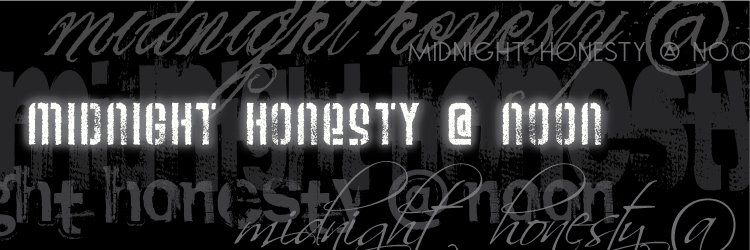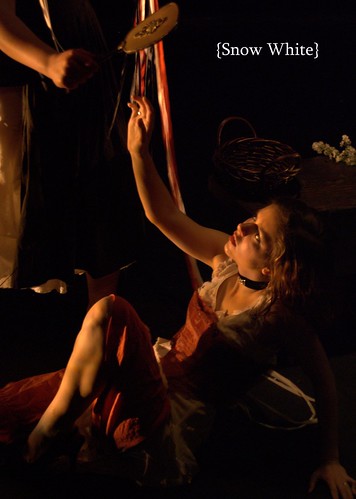Meanwhile - to the Left of the Revolution
As midwinter sits on our chests, stealing our breath, revolution stirs in the hearts of men.
And women. of the theatreospehere. Ish
Whatever. Imagine that the Movie Announcer Guy is reading it. It sounds cool.
Revolution is of course stirring in my heart but then I'm a revolution junkie from way back thanks to Mr. Lucas.
Mike Daisey and Scott Walters are fomenting a revolution.
The name of the revolution is something something regional theatre.
Mr. Daisey has codenamed it How Theatre Failed America... but that's not regional theatres, that's all of us. Mr. Daisey has regional theatres in the crosshairs because those are the fields he plays near. As with anything, the Thing that has failed us is the thing immediately upstream of where we're sitting.
Mr. Freeman got lumped in with the revolutionaries and asked to be removed from the rolls over here, commenting on the overt Us/Them of the argument.
Of course all arguments are Us/Them by definition.
They/Thems are observations, not arguments.
But let me clarify: My argument is entirely with Us.
By which I naturally mean me (like James Comtois I am a New Hampshire native and come by my Calvinism fairly - which is not to say that James has some sort of innate Calvinism, I just.... never mind).
Is it true? Have Regional Theatres failed America? I have no idea. I have no idea how to even begin having an idea. I can look at their stated goals and where they are and say they haven't reached them. but I used to say I want to be President. What I can say is that we as theatre artists are failing this generation of Americans, and we're going to need help from the ostensible top to fix it.
Regional theatres are messed up. With their convoluted corporate arts approach to choosing a season, the unnecessary importing of talent and the dodging of controversy in search of subscriptions it's easy to cast aspersions from the street. They are doing business the way they feel they need to, they are surviving in a poisonous climate for the arts, and they may not be originating the groundbreaking work we think they should be, but nether are they only ever doing the Commercial. The fact that they are not doing your work isn't a sign of a failed mandate.
What we need isn't to fix the Regional Theatres, or to depose them and set up a new system. We need to brand and market the level under them. Regionals have taken a lot of the status that Broadway had. Even your neophyte theatergoer in search of brand understands that they aren't getting the most challenging work of the form. Indeed there is ample reason to think that's part of the reason they're going to Broadway in the first place. But people need their brands, they need security.
Scott Walters in his most recent post on Daniel Quinn, a cornerstone of Mr. Walters' push toward tribe-based companies, posits that program is the problem and that we are drawn to creating program despite the invariable failure of all things programmatic. Human folk (I would say all sentient beings, but I'll hesitate to speak for them) need structure. Out entire universe as understood is indeed nothing but nested taxonomies. Our quarrels are from different branches of the organizational tree. It's how we define our very large and mystifying existence.
And we need that understanding in the theatre world.
We need for "Broadway" to mean something, and "Off-Broadway", and "Off-Off", and "Regional".
We need it because our audience needs it. And we need them.
A prospective audience member needs the assurance that a company, or theatre, or director has been vetted somehow.
For someone to take a risk on you and your show (say a 14 part performance art anthology) your audience needs to have a way to determine whether or not you have a core competence. This is of course on its root level the purpose of the critic. But as critics continue to deny their position as the gatekeepers of the theatrical kingdom (insisting that they are separate), it is incumbent on the theatre community itself to provide legitimacy as it grows.
There are only two ways to achieve that legitimacy. Earn it after years of production and reviews and core audience building. Or to have a recognized group pass it on.
If there becomes a recognized link between theatres and groups they share their legitimacy. Salvage Vanguard here in Austin has done this with the groups that they sponsor. More companies need to do it.
The Regionals can do it easily. Not by creating junior companies or adjuncts, but by giving their stamp to local companies that are doing the work that is too challenging for their subscriber base. Which would also allow the companies to avoid situations like the one Chloe Veltman observed in her piece on ACTs production of Blood Knot. In Chloe’s opinion ACT has a production out of step with their main space and no grittier space to use for that run. If ACT were partnered with several smaller groups and moved Blood Knot OUT of the Geary for its run and took its crowd to a grittier space more appropriate to the play, they give ACTs stamp of approval to another physical space, and show their subscribers that that scruffy theatre downtown is perfectly okay to see a show in.
"Travis, you gone off on a pretty meandering path again...what the hell does this have to do with Scott and Regional theatres?"
Wouldn't you like to know.
Kidding.
Simply this.
The Regionals aren't Broken for themselves, they're broken for us.
We don't need to fix them to do what we want to do, we need the legitimacy that they have (and can convey) to build our own audiences and inheritable legitimacy.
From the above link Walters post:
Old minds think:
If it didn't work last year, let's do MORE of it this year.
New minds think:
If it didn't work last year, let's do something ELSE this year.
Let the Regionals do more. It will either work or it won't. If you're truly revolution-minded then you aren't really suited to their game anyway.
Start your own.
And remember the whole while that we're on the same team.








